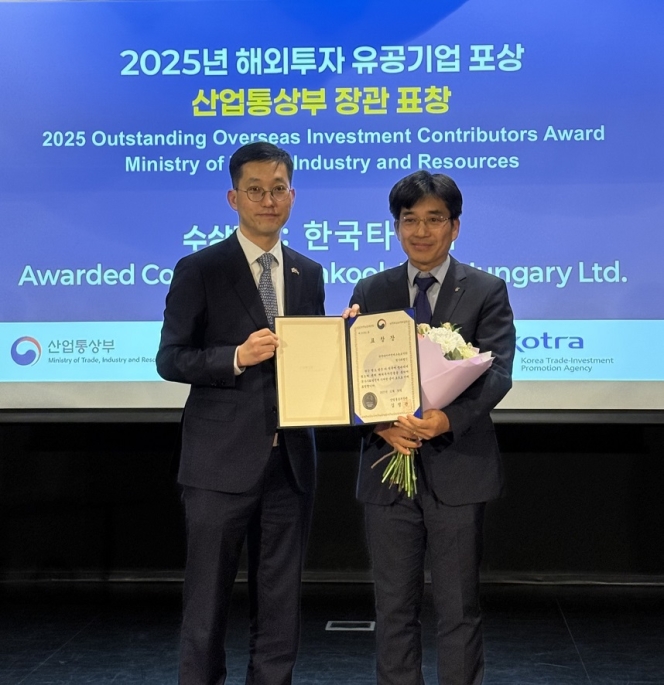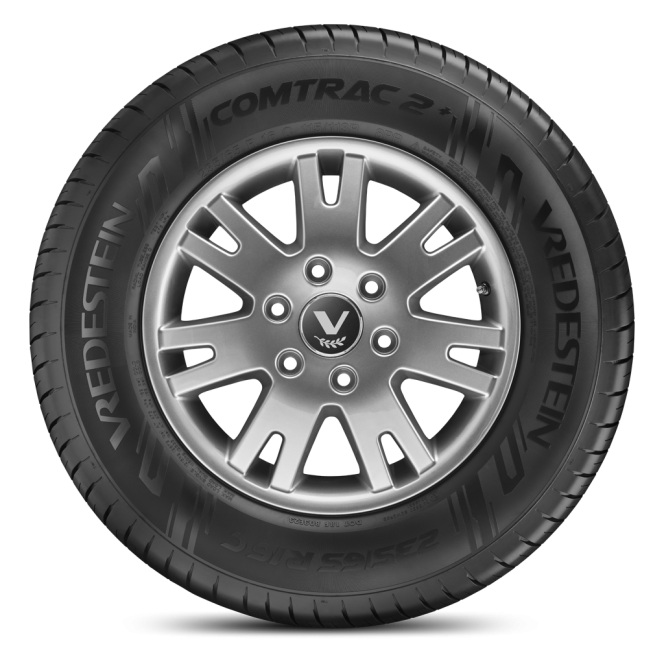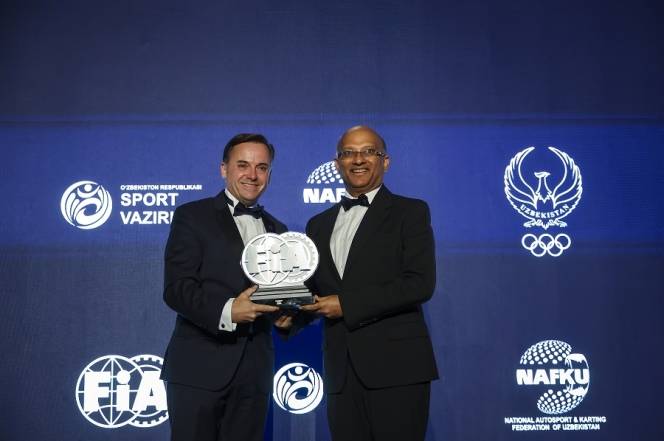Continental Marks 90 Years of Winter Tyre Innovation and Safety
- By TT News
- December 16, 2024

Continental, one of the world’s leading tyre manufacturers, is celebrating 90 years of developing and producing winter tyres. The German company launched its first winter-specific tyre, the Gelände, in 1934, pioneering safety and performance in cold-weather driving conditions.
Today, Continental’s winter tyres, including the award-winning WinterContact TS 870, feature advanced tread patterns and specialised rubber compounds that deliver superior grip, braking and handling on snow, ice, and wet roads. The German automobile association ADAC recently recognised the TS 870 as a test winner for its precise and safe driving performance across various road conditions.
“For 90 years, our winter tyres have been synonymous with safety in winter weather conditions. Softer rubber compounds improve adhesion, while sipes provide grip on snow and ice. And wider grooves displace water particularly effectively,” explains Martin Welzhofer, Head of Global Tire Testing at Continental Tires. “We put our winter tyres through their paces during testing on snow and ice, in Germany and Sweden.”
Decades of Progress in Winter Safety
Continental’s winter tyres are specifically engineered to handle harsh weather. Compared to summer tyres, they provide significant safety advantages. In recent tests conducted by UK trade magazine Tyre Review, the WinterContact TS 870 P demonstrated remarkable braking performance. When braking hard from 40 km/h on snow, the winter tyre stopped in just 18.25 metres, while a summer tyre took 44.18 metres — a difference of nearly six car lengths.
Similar results were observed on ice. During emergency braking from 25 km/h, the WinterContact TS 870 P stopped in 11.13 metres, whereas the summer tyre required 32.19 metres — almost three times the distance.
This performance is attributed to Continental’s advanced tread design and rubber compounds. The softer, more flexible winter tyre compound enhances grip at low temperatures, while optimised tread grooves and sipes improve traction and water displacement.
Rigorous Testing for Maximum Safety
Ensuring safety remains Continental’s top priority. Each new winter tyre undergoes extensive testing, covering up to 500,000 kilometres across 20 disciplines before being brought to market. The tyres are assessed for traction, braking, cornering stability, and directional control on dry, wet, and snow-covered roads. Noise levels, fuel efficiency, and overall driving comfort are also evaluated.
Testing takes place under extreme conditions. At Continental’s test site in Arvidsjaur, Sweden, near the Arctic Circle, engineers measure performance on snow and ice, collecting over 60,000 individual data points each winter. Vehicles complete thousands of manoeuvres, including starts, cornering and braking on icy surfaces.
Closer to home, the company’s Contidrom test site near Hanover features an indoor ice track that operates year-round. Here, tyres are tested under varying temperatures to assess rubber compound behaviour in freezing conditions. Continental’s automated braking test facility further ensures precision by evaluating tyre performance on wet and dry surfaces without a driver.
A Legacy of Innovation
Continental’s journey in winter tyre development began in 1934 with the Gelände, one of the world’s first tyres designed for snow, ice, and slush. By 1953, the company’s M+S winter tyres had proven their capability by enabling vehicles to cross the snow-covered Gotthard Pass in the Alps safely.
Today, Continental continues to push boundaries, refining its tyre technologies and materials to ensure optimal safety and performance. Models such as the WinterContact TS 870 undergo relentless testing in Sweden’s icy landscapes and the Contidrom’s controlled environments.
With 90 years of experience, Continental remains at the forefront of winter tyre innovation, delivering safer driving experiences for motorists navigating treacherous winter roads.
Veteran Racer Sanjay Takale To Lead India's Charge At Dakar 2026
- By TT News
- December 17, 2025

India will once again be represented at the world's most formidable rally raid as veteran racer Sanjay Takale prepares for his second attempt at the Dakar Rally in 2026. This event, renowned as the ultimate endurance challenge, will see Takale draw upon his disciplined approach and decades of international racing expertise across both motorcycles and cars. His participation underscores a continued, though rare, Indian presence on this global motorsport stage.
Takale’s previous campaign was historically successful, culminating in an 18th-place overall finish. Framing his upcoming effort as an evolved chapter, he is focusing on intensified preparation and strategic refinement. This return is fuelled by over 35 years of accumulated track insight and a sharpened competitive perspective.
In addition to his driving career, Takale’s role as Director of aerpace Industries allows him to champion broader national ambitions in engineering and mobility. He consistently frames motorsport as a dynamic proving ground for core industrial principles like precision, systemic endurance and meticulous execution.
Ultimately, Takale's journey back to the Dakar starting line symbolises India's growing footprint in international motorsport. It is a narrative built not on fleeting speed but on profound experience, resilience and a dedicated pursuit of excellence under the world's most extreme racing conditions.
Takle said, “My first Dakar was an extraordinary experience. Dakar changes you once you race it; you are never the same. It challenges you mentally, breaks you down and teaches you resilience, discipline and the true meaning of fighting back. I emerged not just as a stronger driver but as a different person altogether. This year, my focus is clear to return, finish the rally again and significantly improve my position. I will once again be competing for my team, aerpace Racers, with technical support from Compagne Sharenne, France. I am proud to represent India as the only four-wheeler entry for the second consecutive year. My goal is simple: to see the finish line and to finish stronger.”
Korean Ministry Of Trade Commends Hankook Tire For Overseas Investment Excellence
- By TT News
- December 16, 2025

Hankook Tire has been honoured with a Ministerial Commendation by the Ministry of Trade, Industry and Resources of Korea. The honour was conferred at the 2025 Outstanding Overseas Investment Contributors Awards, an event hosted at the Korean Cultural Center in Budapest, Hungary, designed to recognise firms that enhance national competitiveness through global investment. During the ceremony, the company's leadership detailed its achievements to an audience of diplomatic officials and fellow Korean businesses operating in the region.
The award celebrated Hankook Tire's excellence across four critical areas. Economically, its strategic manufacturing base in Rácalmás, Hungary, established in 2008, has become a significant contributor to the Korean economy through consistent profit repatriation. The company has also acted as a catalyst for other Korean enterprises, enabling market entry for supply chain partners while securing its own strategic alliances within Europe, thereby strengthening the collective agility and global standing of Korean industry.
Beyond commerce, the company's deep local social commitment was highly recognised. The Hungarian plant is a cornerstone of the regional economy, having multiplied its local workforce to approximately 3,000 employees and maintaining this stability even through periods of global economic uncertainty. This commitment extends through extensive community outreach, including the long-term donation of tyres to enhance public and private mobility safety, alongside targeted investments in local infrastructure, social welfare and youth scholarships.
Furthermore, Hankook Tire serves as a central pillar for the Korean business community in Hungary. By holding leadership roles in major business associations, the company facilitates essential dialogue and practical cooperation, helping to resolve common challenges and support the sustainable operation of Korean enterprises in the market. Through this powerful combination of economic performance, social integration and community leadership, Hankook Tire exemplifies the impactful role of responsible overseas investment in fostering mutual growth and strengthening international ties.
Ho Taek Lim, Managing Director of Hankook Tire Hungary plant, said, “As a representative company with deep roots in Hungary, Hankook Tire is committed to fostering unity within the Korean community and supporting the successful establishment of Korean companies entering the market. Through close collaboration with local institutions, we will continue enhancing the competitiveness of Korean companies in Europe while advancing Korea’s national interests.”
Apollo Tyres Launches Vredestein Comtrac 2+ Van Tyre
- By TT News
- December 16, 2025

Apollo Tyres Ltd has introduced the Vredestein Comtrac 2+, a new summer tyre engineered for light commercial vehicles. Set for a European launch in January 2026, this premium model will be available in 21 sizes for rims from 15 to 17 inches, including extra-load variants for heavier demands. It builds upon its predecessor with significant advancements in durability, efficiency and overall performance, aiming to lower the total cost of ownership for fleet operators.
A key innovation is a fourth-generation polymer compound, which boosts abrasion resistance by 13 percent. This advancement extends tread life, reduces replacement frequency and minimises the release of microplastics from wear. The tyre’s construction includes a reinforced bead area and a robust carcass for enhanced stability and reliability under heavy loads, improving vehicle uptime. Safety in wet weather is addressed through a specialised silica filler and an efficient tread pattern designed to prevent aquaplaning by rapidly dispersing water.
Furthermore, the Comtrac 2+ achieves a seven percent reduction in rolling resistance, improving fuel economy for conventional vehicles and helping to extend the driving range of electric and hybrid vans. Every aspect of the tyre is crafted for maximum longevity and cost efficiency, supporting business operations with fewer interruptions. The product also meets the stringent requirements of the European Union Deforestation Regulation, aligning with contemporary environmental and sustainability standards.
Yves Pouliquen, Vice President, Commercial EMEA, Apollo Tyres Ltd, said, “With the Comtrac 2+, we set out to address the changing demands of today’s light commercial vehicle operators, whether independent trade professionals or major fleet managers. Our R&D Team has engineered the tyre to deliver longer tread life, lower rolling resistance and a safer, more comfortable ride that drives greater efficiency – all at an accessible price point.”
MRF Tyres Clinches Third FIA European Rally Championship Team Title
- By TT News
- December 16, 2025

MRF Tyres has once again proven its motorsport pedigree by securing the 2025 FIA European Rally Championship Team Title. The official accolade was presented at the season-ending FIA Awards Gala in Tashkent, where Vice-Chairman and Managing Director Arun Mammen collected the trophy. This gala represents the pinnacle of the international motorsport calendar, formally recognising champions from across the discipline.
This victory marks the team’s third ERC crown, following previous successes in 2022 and 2023. It was earned through a campaign defined by remarkable consistency and adaptability across diverse rally stages. Strategic tyre choices and seamless coordination between the team’s personnel, engineers and driving crews were fundamental to this achievement, highlighting the programme’s overall strength and the reliability of its products.
The company has extended its appreciation to every individual who contributed to this result. The recognition at such a distinguished forum reinforces the company’s commitment to excellence and cements its position as a leading force on the global rally stage.
Mammen said, “We are deeply honoured to receive the Team Title at such a prestigious occasion. This award recognises not only the work of our engineers and staff, but also the spirit, dedication and resilience of the entire MRF Tyres organisation, both on and off the stages of the 2025 European Rally Championship. When preparation, performance and passion come together, tyres can make the difference. This trophy underlines our commitment and encourages us to continue delivering our very best in the seasons to come.”







Comments (0)
ADD COMMENT